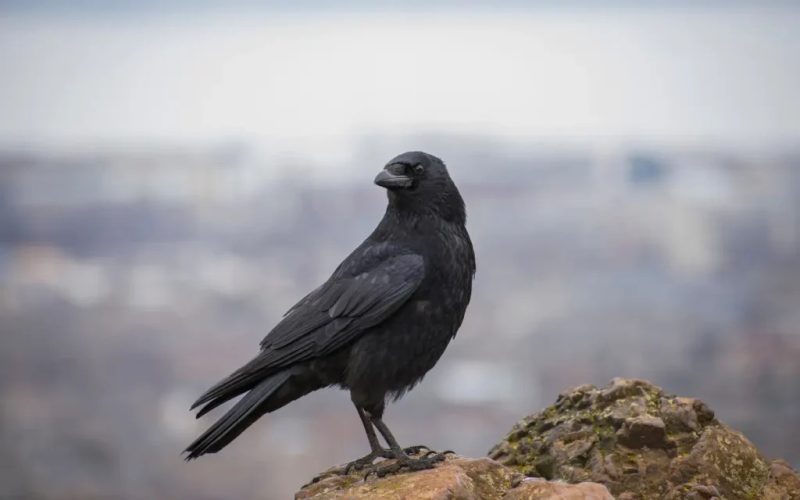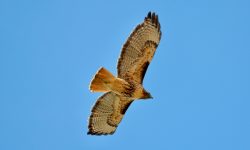Crows have long been associated with various symbolic meanings across cultures, religions, and folklore. These intelligent and mysterious birds have captured human imagination for centuries. Often seen as creatures of the night, they are linked to both darkness and light, good and evil.
In this article, we will explore the symbolic significance of crows, delve into their meanings in different cultures, and discover how they are perceived in modern contexts.
The General Symbolism of Crows

Crows are often misunderstood creatures. They are neither entirely good nor evil but occupy a unique position in the symbolic world. The symbolism of crows is multi-faceted, and their meaning varies depending on cultural and spiritual contexts. Crows are frequently seen as messengers, representing transformation, intelligence, and mystery.
Transformation and Change
One of the most prominent symbolic meanings associated with crows is transformation. These birds are often viewed as harbingers of change or transition. Crows are linked to death in some traditions, but not necessarily in a negative sense. Instead, their association with death represents the end of one phase and the beginning of another. The crow’s ability to navigate between the material and spiritual worlds highlights its role in guiding souls through the process of transformation.
In many Native American cultures, the crow is seen as a teacher, helping individuals to navigate through life’s changes. Their black feathers, which are often seen as symbols of darkness or the unknown, also symbolize the hidden knowledge and wisdom that can emerge from periods of personal growth and transformation.
Intelligence and Problem-Solving
Crows are renowned for their exceptional intelligence and problem-solving skills. This has led to their symbolic association with cleverness and insight. Crows are often depicted as clever tricksters in mythology, able to outsmart others and think creatively to solve problems. This symbolism reflects the bird’s ability to observe and adapt to its environment, making it a symbol of resourcefulness.
Their ability to communicate, use tools, and even plan for the future has made crows a symbol of wisdom and mental agility. In some cultures, crows are seen as the embodiment of the mind, representing the power of thought and reasoning.
Mystery and the Unknown
The crow’s black plumage and its nocturnal behavior contribute to its association with mystery and the unknown. Throughout history, the crow has been linked to the supernatural and often appears in mythologies as a guide or messenger between worlds. Its presence in folklore often signifies the arrival of something unknown, whether it is a message from the spirit world or a warning of impending danger.
In many cultures, the crow is believed to possess the ability to see beyond the physical world and into the spiritual realm. This gives the crow a mysterious aura, one that is capable of revealing hidden truths and secrets that are not immediately visible to the human eye.
Crows in Different Cultures and Their Symbolic Meanings
The symbolism of crows varies widely across cultures, from being a symbol of misfortune to a representation of wisdom and spirituality. Let’s take a closer look at how crows are perceived in different parts of the world.
Crows in Native American Culture
In Native American culture, crows are often seen as messengers or guides, bridging the gap between the human and spiritual realms. The crow is considered sacred in many Native American traditions, particularly among the tribes of the Northwest Coast. They view crows as powerful spiritual beings, able to communicate with the spirit world.
In some tribes, the crow is regarded as a trickster figure, similar to the coyote or raven. This reflects the bird’s cleverness and its role in teaching valuable life lessons through its mischievous nature. The crow’s black feathers symbolize its connection to the unseen and the mystical, and it is often associated with the concept of transformation and change.
In other Native American traditions, the crow is a symbol of creation and the sacredness of life. It is believed that the crow helped to shape the world and bring order to chaos.
Crows in Norse Mythology
In Norse mythology, crows play an important role, with the most famous crows being Huginn and Muninn, the ravens of Odin, the chief god in the Norse pantheon. These two ravens fly across the world each day and bring back information to Odin, symbolizing wisdom, knowledge, and insight. While ravens are more commonly associated with these traits, crows share many symbolic meanings with ravens, as both birds are highly intelligent and associated with prophecy and knowledge.
Crows in Norse mythology are often seen as messengers of the gods, carrying important information or warnings. Their dark feathers and association with death symbolize the connection between life and the afterlife, as well as the cyclical nature of existence.
Crows in Celtic Traditions
In Celtic traditions, crows are linked to the Otherworld, a realm that exists beyond the mortal plane. They are believed to be able to travel between the worlds, serving as guides for the souls of the dead. In this context, crows are often seen as symbols of death and rebirth, guiding the departed to their final resting place.
The crow is also associated with the goddess Morrigan, a powerful figure in Celtic mythology. Morrigan is the goddess of war, fate, and death, and she is often depicted as a crow or raven. The crow’s association with Morrigan further emphasizes the bird’s connection to transformation, as it is both a symbol of death and a guide to new beginnings.
Crows in Modern Culture and Symbolism
In contemporary society, the crow continues to hold significant symbolic meaning. While the bird’s reputation as a symbol of death and misfortune remains in some cultures, crows are also seen in a more positive light, representing adaptability, intelligence, and resilience.
Crows as Symbols of Intelligence
Crows are highly regarded for their problem-solving abilities and their use of tools. In recent years, studies have shown that crows are capable of complex behaviors such as planning for the future, understanding cause and effect, and even recognizing human faces. This has led to a shift in how crows are viewed in modern culture. Today, they are often seen as symbols of intelligence and adaptability, representing the power of the mind and the ability to overcome challenges.
In modern spirituality, crows are sometimes seen as a reminder to trust one’s intellect and intuition when faced with difficult decisions. The crow’s sharp mind and problem-solving skills serve as a symbol of the importance of using one’s wits in navigating life’s obstacles.
Crows in Art and Literature
Throughout history, crows have been depicted in art and literature as symbols of mystery, death, and the supernatural. They appear in the works of Edgar Allan Poe, particularly in his famous poem “The Raven,” where the bird is a symbol of sorrow and the haunting memory of lost love.
In more recent times, crows have also been used in popular culture as symbols of resilience and survival. They often appear in stories as characters who are able to outsmart others or persevere through difficult circumstances. This reinforces the modern interpretation of crows as symbols of adaptability and cleverness.
The Spiritual Significance of Crows
On a deeper, spiritual level, crows hold a unique significance. In many spiritual traditions, the crow represents the ability to transcend ordinary experiences and tap into higher wisdom. Crows are often seen as spiritual guides, offering insight into the mysteries of life, death, and transformation.
The Crow as a Spirit Animal
For those who believe in spirit animals, the crow is often seen as a powerful guide. As a spirit animal, the crow is believed to offer insight and wisdom, helping individuals navigate through times of uncertainty and change. The crow’s ability to move between the physical and spiritual realms makes it an excellent guide for those seeking answers to deep, existential questions.
If the crow appears as a spirit animal, it may be a sign that the individual is ready for a period of transformation or change. It may also indicate a need to tap into one’s intellectual and spiritual strengths in order to overcome challenges.
Conclusion: Embracing the Crow’s Hidden Meaning
Crows are complex and fascinating creatures, and their symbolism carries deep meaning across cultures and spiritual traditions. From transformation and intelligence to mystery and wisdom, the crow represents a multitude of qualities that make it a powerful symbol in human consciousness.
Whether you view the crow as a symbol of death and change, or as a representation of wisdom and cleverness, one thing is clear: this bird holds a unique place in our collective imagination. Embrace the crow’s hidden meaning, and let it guide you through the mysteries and transformations of life.






